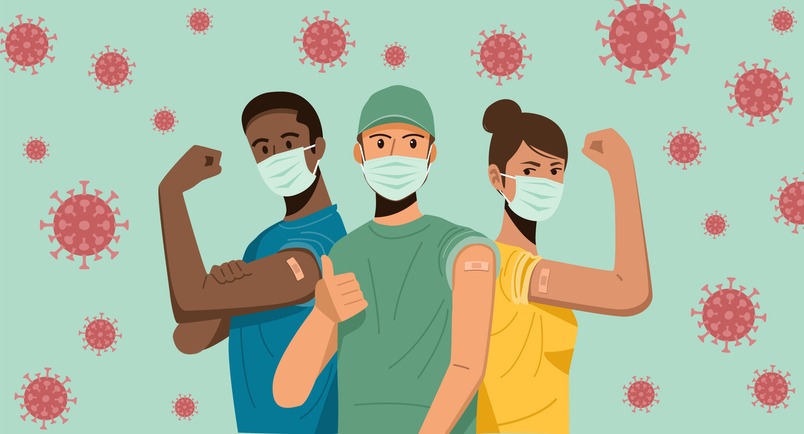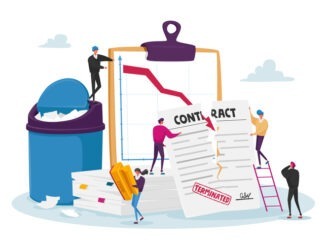
This guidance from the BMA applies to all CQC-regulated settings in England – but it will only affect those healthcare workers who are in direct, face-to-face, contact with patients
CREDIT: This is an edited version of an article that originally appeared on BMA
At present healthcare workers will need to have received their first jab by February 3 in order to be fully-vaccinated by the March 31 cut-off point as the policy comes into effect on April 1. Those who do not meet that deadline are at risk of dismissal.
If you have already had COVID
People who have already had COVID are not exempt from the vaccination. There is strong evidence that vaccination – irrespective of previous infection status – stimulates a strong immune response and provides protection from serious illness. Vaccination on top of previously acquired infection is shown to provide a more robust immune response.
If you have long-COVID
Although having long-COVID is not a reason for exemption, there are some temporary exemptions if you have a short-term medical condition. If you believe this might apply to you we would encourage you to speak to your doctor.
If you are pregnant, or planning a pregnancy
The Joint Committee on Vaccination and Immunisation (JCVI) have recommended that pregnant women be offered the COVID-19 vaccine as there is no evidence that it impacts fertility. The vaccine is one of the most effective interventions to protect against serious illness from COVID-19. The JCVI, the Royal College of Obstetricians and Gynaecologists, the Royal College of Midwives and the UK Tetralogy Service all recommend the COVID-19 vaccination for pregnant and breastfeeding women.
In relation to mandatory vaccination, short-term medical exemptions are available for pregnant women if they choose to take this option. It is worth noting that, once these expire, you will have to prove that you are fully-vaccinated – otherwise you are at risk of dismissal.
If you were vaccinated abroad
Individuals vaccinated abroad will be required to provide proof of their vaccination status, such as in the form of the EU digital vaccination certificate. Depending on vaccination status, it may be necessary for individuals to receive a top-up dose if that is required by the UKHSA guidelines.
If you do not work in England
The devolved administrations in Scotland and Wales do not currently have plans to make vaccination mandatory for workers in health and social care, and a consultation is planned in Northern Ireland.
If you are a student on placement on or after the April 2022 deadline
If you are working in a CQC-regulated setting with patient-facing contact, you will need to be vaccinated.
If you cannot make the deadline because you caught COVID
If you have caught COVID you are not able to get vaccinated against COVID for 28 days; this means there will be a number of individuals who, as a result, may not be able to meet the deadline of being fully-vaccinated by the March 31 cut-off point.
NHS England have indicated that individuals will be considered as temporarily exempt for 42 days from the date of their positive test result on the basis that there are clinical reasons why they should not be vaccinated. You will need to be able to prove a positive test – such as with a text message, or through the NHS COVID app.
If you are on leave until after the deadline
If you return to work on or after the date that compulsory vaccines are required then it is likely that your employer will say you need to be fully-vaccinated by the time you return. There may, however, be limited medical exemptions in the short-term if you have a short-term medical condition. We would recommend you speak to your doctor if you feel this may apply to you.
If you are not likely to be fully-vaccinated at the point of return this may mean that you would need to seek short term redeployment, if possible, or to delay your return. However, longer term, you will need to be fully-vaccinated or you will risk losing your job.
How to evidence your vaccination status
You can provide evidence of your vaccination status in a variety of ways.
- Recognised forms of evidence of COVID-19 vaccination include the NHS COVID pass or equivalent from NHS Scotland, NHS Wales or the Department of Health in Northern Ireland.
- An EU digital COVID certificate or a CDC vaccination card.
- Certificates in English, French or Spanish issued by a competent health authority.
If you have not had your booster jab
At present, booster jabs are not required in order for a healthcare worker to be considered fully-vaccinated.


Be the first to comment